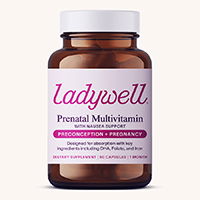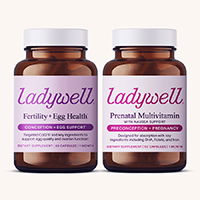Blocked fallopian tubes, also known as tubal occlusion, can be a major obstacle when trying to conceive. However, a diagnosis doesn’t mean pregnancy is impossible. With the right approach, medical support, and lifestyle adjustments, you can improve your chances of getting pregnant.
In this guide, we’ll break down what blocked fallopian tubes are, their causes, symptoms, and the actionable steps you can take to support your fertility journey.
What Are Fallopian Tubes & Why Are They Important for Pregnancy?
The fallopian tubes play a crucial role in conception. They serve as the pathway between the ovaries and uterus, allowing the egg to travel for fertilization. If one or both tubes are blocked, it can prevent sperm from meeting the egg, making it difficult to conceive naturally.
What Causes Blocked Fallopian Tubes?
Several factors can contribute to fallopian tube blockages:
- Pelvic Inflammatory Disease (PID): A common cause of tubal damage due to untreated infections.
- Endometriosis & Fibroids: Tissue growth outside the uterus can block or distort the tubes.
- Sexually Transmitted Infections (STIs): STIs like chlamydia and gonorrhea can lead to scarring and blockages.
- Previous Abdominal or Pelvic Surgeries: Scar tissue from C-sections or surgeries can obstruct the tubes.
- Uterine Infections (e.g., Female Genital Tuberculosis): A rare but potential cause of tubal damage.
Signs & Symptoms of Blocked Fallopian Tubes
Many women with blocked fallopian tubes don’t experience obvious symptoms. However, some may notice:
- Infertility: The most common sign, often discovered when struggling to conceive.
- Pelvic Pain: May be chronic or occasional, depending on the severity of the blockage.
- Pain During Intercourse: A possible indicator of underlying inflammation or scar tissue.
- Heavy or Irregular Periods: Could signal a reproductive issue affecting tubal function.
- Frequent UTIs or Difficulty Urinating: In some cases, blockages can contribute to urinary symptoms.
Since symptoms can be subtle or non-existent, proper diagnosis is essential for understanding your fertility status.
How Are Blocked Fallopian Tubes Diagnosed?
If you suspect blocked fallopian tubes, your doctor may recommend one or more diagnostic tests:
- Hysterosalpingography (HSG): An X-ray with contrast dye to detect blockages.
- Sonohysterography (Sono-HSG): A transvaginal ultrasound used to assess tubal patency.
- Laparoscopy: A minimally invasive surgical procedure that provides a direct view of the fallopian tubes and can sometimes remove blockages.
Can You Get Pregnant with One Blocked Tube?
Yes! If only one tube is blocked, you may still be able to conceive naturally, as long as the other tube is healthy and functional. However, it’s important to address any underlying causes to optimize your fertility.
If both tubes are blocked, additional treatments may be necessary.
6 Steps to Increase Your Chances of Pregnancy with Blocked Fallopian Tubes
If you’ve been diagnosed with blocked fallopian tubes, don’t lose hope. Here are 7 steps to support your fertility journey.
1. Consult a Fertility Specialist
A reproductive endocrinologist can provide a proper diagnosis and personalized treatment options based on the severity of your condition. Seeking professional guidance early can save time and increase your chances of pregnancy.
2. Explore Fertility Treatments
If both fallopian tubes are blocked, assisted reproductive technologies (ART) can be an effective alternative:
- In-Vitro Fertilization (IVF): This procedure bypasses the fallopian tubes entirely, fertilizing the egg outside the body and implanting it directly into the uterus.
- Tubal Recanalization: A procedure to open minor blockages in the tubes.
IVF is often the best option when the blockages are severe or surgery is not recommended.
3. Optimize Your Lifestyle for Fertility
While lifestyle changes alone can’t unblock fallopian tubes, they can significantly improve reproductive health:
- Maintain a fertility-friendly diet rich in antioxidants, healthy fats, and lean proteins.
- Engage in regular exercise to support circulation and hormone balance.
- Reduce stress levels with mindfulness, yoga, or therapy.
- Avoid smoking, excessive alcohol, and caffeine, as they can negatively impact fertility.
Take a high-quality prenatal vitamin and consider fertility-boosting supplement like Ladywell's Fertility + Egg Health.
4. Track Your Ovulation
Understanding your cycle can help maximize your chances of conception:
- Use ovulation predictor kits (OPKs) to detect your fertile window.
- Monitor cervical mucus changes (clear, stretchy mucus signals ovulation).
- Track basal body temperature (BBT) to pinpoint ovulation patterns.
5. Address Underlying Health Conditions
Blocked fallopian tubes often coexist with other fertility issues like:
- Endometriosis – Can cause inflammation and scarring in the reproductive tract.
- Polycystic Ovarian Syndrome (PCOS) – Though it doesn’t directly cause blockages, it can contribute to hormonal imbalances affecting fertility.
- Uterine Fibroids – May impact tubal function depending on size and location.
Managing these conditions through medical and natural interventions can enhance overall fertility.
6. Consider Surgical Options
In some cases, surgery may help restore tubal function:
- Tubal Recanalization – A procedure to remove minor blockages.
- Tubal Ligation Reversal – If your tubes were surgically tied, this can restore fertility.
-
Laparoscopic Surgery – Can help remove scar tissue and improve tubal health.
A fertility specialist can assess whether surgery is a viable option for you.
Final Thoughts
A diagnosis of blocked fallopian tubes does not mean the end of your fertility journey. By seeking the right medical support, making lifestyle adjustments, taking supplements, and exploring treatment options like IVF or surgery, you can improve your chances of conceiving.
The key is education, proactive health choices, and a strong support system. Every fertility journey is unique, but with the right approach, pregnancy is still possible.
Disclaimer
The information provided in this blog is for educational purposes only and is not intended as a substitute for professional medical advice. Always consult a qualified healthcare provider before making any changes to your health regimen, especially if you are pregnant, nursing, or taking any medications.

















































